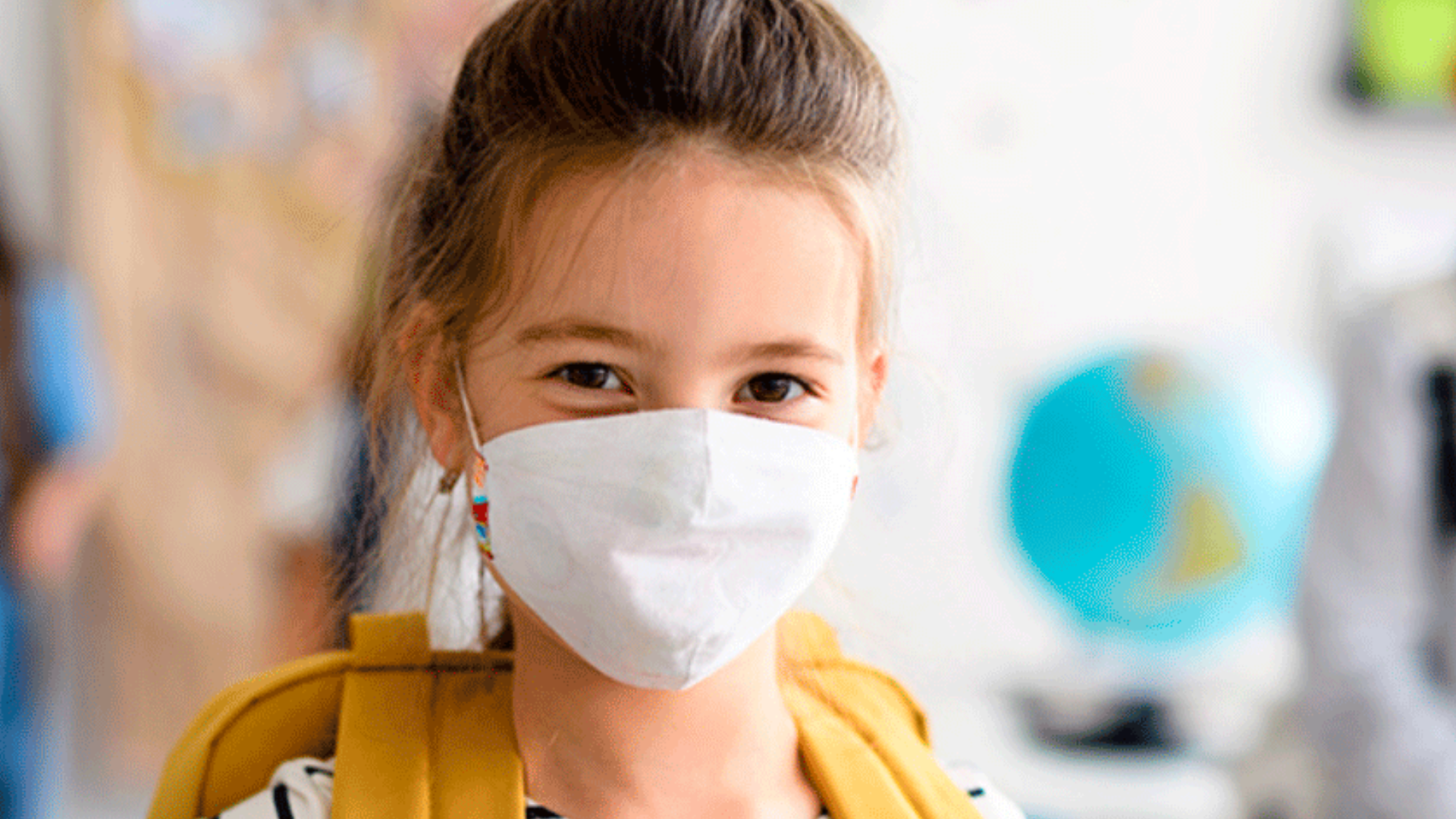Back-to-School Tips in the Time of COVID-19

It's back-to-school time, and it's probably never been more stressful given the COVID-19 pandemic. If your child is doing in-person classes this fall, you probably have a lot of things to consider (or worry about!).
Based on my medical training, advice from the Centers for Disease Control and Prevention, as well as my own personal experience (I'm mom to 9- and 15-year-old daughters who are headed back to the classroom), I'd like to offer some tips to help keep your child and others safe.
Masks
By now, six months into the pandemic, most kids should know the drill when it comes to wearing masks and how to put them on/take them off safely. If not, demonstrate and have them practice putting on/taking off their mask without touching the cloth. Explain why wearing a face covering is important because it protects others (including your own family). With a very young child, "practice" putting a mask on stuffed animals, show images of other children wearing masks, draw or paste a mask on a favorite storybook or cartoon character, and heap lots of praise on your child for wearing a face covering correctly. Some other considerations as children head back to school:- Have multiple cloth masks so you can wash them daily and still have backups.
- Mark your child's masks with their name in permanent marker so they don't get mixed up with others'.
- Pack an extra mask in their backpack in case theirs gets misplaced.
- Let your child choose a mask to match their outfit (can you tell I have two daughters?).
Hand-washing and Sanitizing
While I prefer that everyone wash their hands with soap and water, it's easier for kids to use hand sanitizer at school, and it can be just as effective.- Pack a travel-size bottle of sanitizer in their backpack every day.
- Sanitizers come in different scents, girls especially may have a favorite that will encourage them to use it more frequently.
- Remind them to sanitize their hands before and after eating, coughing, sneezing, and touching their mask.
Eating, Drinking, Sharing, Socializing
Most young kids naturally want to share with their friends, learning to share is one of the important lessons that socialization in school can impart! But it's vital that they understand why they must limit this behavior right now:- Talk to your child about how school's going to look different this year with things like physical distancing, maybe staying in their classroom for lunch.
- Be sure to pack a water bottle for your child so they're not tempted to share.
- Reinforce that they shouldn't share pens, pencils, books or toys with classmates.
- If the school uses a cohorting model (where a group of children stays together over the course of the day to decrease opportunities for exposure or transmission of the virus, and reduce contact with shared surfaces), consider limiting your child's out-of-school socializing to kids in the same cohort.
Teens and Peer Pressure
Teens tend to give in to peer pressure because they crave social acceptance — they want to be liked, to fit in, or they fear that other kids will make fun of them if they don't conform. I'm often asked lately, "What can a parent say to their teen about the seriousness of complying with COVID safety measures if their peers scoff at it?" My thoughts:- Talk to them like an adult and explain how they're responsible for the well-being of their classmates, teachers and their families. How would they feel if they brought the virus home to their parents or siblings?
- The pandemic provides a real teachable moment (or series of moments) to reinforce the life lesson that everyone is responsible for their actions.
- Appeal to their self-interest. How will they feel if there's an outbreak, school gets shut down and they're quarantined at home again?
Managing Stress
These are unusual times and so much feels out of our control. Some things I do to help myself de-stress as I send my child back to school:- I remind myself that there are hundreds of people in our school system, teachers and administrators, who are focused on how to keep my child safe (as well as themselves!), and the state on top of that. They're in their profession because they love kids and they want to do the right thing.
- I remind myself that research shows kids are mostly carriers of COVID-19, and if they do get sick, in most cases it's less severe.
- I model safe, healthy behavior for my daughters and practice self-care.
- Establish safety-related daily routines for before and after school, making sure that things like an extra mask or hand sanitizer are packed for school, and that hand-washing is the first thing your child does upon coming home.
- Make sure your child's current with all recommended vaccines, including the flu, this is especially important this year.
Other related articles by:
COVID-19 | handwashing | kids | masks | routine | sanitizer | school | school age | TeenNote: The content of this blog is for informational purposes only. It is not intended for use as diagnosis or treatment of a health problem or as a substitute for the professional consultation of a physician or qualified health care provider. If you have specific questions or concerns regarding a health or medical condition, contact your physician or a licensed health care professional.

